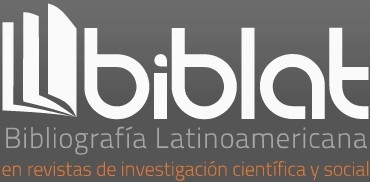The principle of immanence and ontological difference
DOI:
https://doi.org/10.35494/topsem.2014.1.31.36Keywords:
being, immanence, ontological difference, force, sense.Abstract
The principle of immanence as a methodological assumption
based on the linguistic model of semiotics excludes the being,
understood as the extralinguistic reality, otherwise known as
the referent. That which lies outside the epistemological boundaries
of semiotics is the referent, an entity that can be spatiotemporally
identified. Ontology is the discipline that focuses
on reference. This study proposes to show that ontology can
be understood in a different way that is not in conflict with the
principle of immanence in semiotics. In other words, a concept
of ontology that is not the reintroduction of transcendent
existence, but rather exists in the same space as immanence
and thereby permits reflection on the emergence of sense.
This is the understanding of ontology found in Heidegger’s
hermeneutic phenomenology. The connecting thread between
semiotics and ontology is the Heideggerian concept of ontological
difference.
Downloads
References
BERTORELLO, Adrián (2008). El límite del lenguaje. La filosofía de Heidegger como teoría de la enunciación. Buenos Aires: Biblos.
CIOFLEC, Eveline (2012). Der Begriff des "Zwischen" bei Martin
Heidegger. Eine Erörterung ausge-hend von Sein und Zeit: Friburgo- Múnich: Alber.
FONTANILLE, Jacques (1993-1994). "La epistemología de las pasiones”, Revista Morphé, núm. 9-10, Puebla, México: UAP.
FONTANILLE, Jacques (2006). Semiótica de las pasiones. Lima: Fondo Editorial de la Universidad de Lima.
GREIMAS, Algirdas Julien y FONTANILLE, Jacques (2002). Semiótica de las pasiones. De los estados de cosas a los estados de ánimo. México: Siglo XXI.
HEIDEGGER, Martin (1986). Sein und Zeit. Tubinga: Max Niemeyer.
HEIDEGGER, Martin (1989). Die Grundprobleme der Phänomhenologie. Fráncfort del Meno: Vittorio Klostermann.
HEIDEGGER, Martin (1994). Prolegomena zur Geschichte des Zeitbegriffs. Fráncfort del Meno: Vittorio Klostermann.
HEIDEGGER, Martin (1999). Zur Bestimmung der Philosophie. Fráncfort del Meno: Vittorio Klostermann.
HEIDEGGER, Martin (2006). Zollikoner Seminare. Fráncfort del Meno: Vittorio Klostermann.
PARRET, Herman (1995). Las pasiones. Ensayo sobre la puesta en discurso de la subjetividad. Buenos Aires: Edicial.
ZILBERBERG, Claude (2006). Semiótica tensiva. Lima: Fondo Editorial de la Universidad de Lima.
Downloads
Published
How to Cite
Issue
Section
License

Tópicos del Seminario is licensed under a Creative Commons Reconocimiento-NoComercial-CompartirIgual 4.0 Internacional License.














